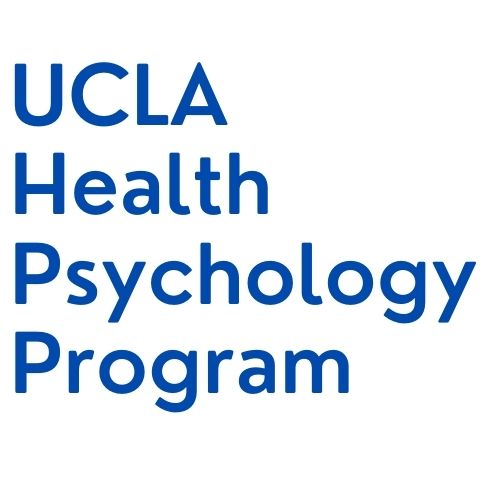Research, Training, and Coursework
Closely supervised research and coursework provide foundations in theoretical approaches to fundamental issues in psychology and in the study of physical and mental health. At the same time, our department and the program offer education in the use of rigorous methodologies for testing theory in laboratory, community, and clinical settings.
Students concentrate primarily on a single research project in the first and second years (Psych 251) culminating with the receipt of the Master’s degree. As training progresses thereafter, health psychology predoctoral students typically work with two or more faculty members to develop an increasing focus on their own particular topics in research, and expertise in the associated methods.
The program admits students who have been identified as a good match for at least one faculty member, but we do not operate by a strict apprenticeship model in that students are encouraged to conduct research with at least two faculty members over the course of their doctoral education.
Beyond the coursework common to all the majors in psychology, the health psychology major has two required courses. One is a proseminar in health psychology and the other is a course in biological bases of health psychology. These are accompanied by elective seminars chosen from a number of options. In addition, majors in Health Psychology attend the area lecture series once a week during fall and winter quarters for 3 years. The health psychology faculty members hold weekly lab meetings with graduate students in which important training experience is gained above and beyond individual research supervision and coursework.
For more details on the major course requirements, click here (pdf).
Interdisciplinary training
In addition to the area’s core faculty, we have a number of faculty affiliates in other areas of the Psychology Department as well as across other departments at UCLA. These include Dr. Michael Irwin and others in the Norman Cousins Center for Psychoneuroimmunology; Dr. Teresa Seeman and Tara Gruenwald and others in Medicine; Dr. Patricia Ganz and others in the Jonsson Comprehensive Cancer Center. Students are encouraged to develop their training across boundaries as deemed valuable to pursue their research interests.
Methodological and statistical training covers experimental design, survey and field research methods, intervention research, and univariate and multivariate techniques including use of structural equation modeling and hierarchical linear modeling.
In addition to housing the Health Psychology program, the Department of Psychology is home to additional core areas of study (Behavioral Neuroscience, Clinical, Cognitive, Developmental, Learning and Behavior, Quantitative, and Social), many of which have ties to the Health Psychology program.
The Psychology Department is also affiliated with a number of cross-disciplinary research programs that offer training and research opportunities to Health Psychology trainees. Some of these are:
- Center for Everyday Lives of Families
- Center for Research, Education, Training and Strategic Communications on Minority Health Disparities
- The Foundation for Psychocultural Research – UCLA Center for Culture, Brain & Development
- Interdisciplinary Relationship Science Program
The Health Psychology program also has strong ties to the David Geffen School of Medicine and the School of Public Health. Past and current trainees have received training and support from a number of interdisciplinary research centers, including but not limited to:
Biological training
We are committed to providing a foundation of biological training to all graduate students through coursework and involvement in our health psychology laboratory. For those who wish in-depth biological research experiences, we are partnered with the Norman Cousins Center for Psychoneuroimmunology and other centers on campus to tailor further training to the individual student’s interests and needs.
Health Psychology Laboratory
The overarching goal of the Health Psychology Lab is to provide health psychology faculty and students with a facility for collecting, processing, and assessing biological samples. The Health Psychology Lab includes facilities for running subjects through experimental and non-experimental protocols that involve collection of biological samples, preparing these samples for analysis, and conducting biological assays. The Health Psychology Lab will also be used to train undergraduate, graduate, and post-doctoral trainees who are interested in psychobiology and health psychology and offers the following courses:
Psychoneuroimmunology
The goals of this course are to introduce students to the field of psychoneuroimmunology and help them develop the conceptual and methodological skills necessary for interpreting research in this area.
Biology of Chronic Disease for Behavioral and Population Scientists
The emphasis in this course is on populations who already have a particular chronic disease or condition, rather than primary or secondary prevention of that chronic disease or condition. Thus, this course is being taught from the perspective of tertiary prevention: reducing the negative impact of existing disease, restoring function, and reducing disease-related complications.
Human Physiology in Social and Behavioral Science
The goals of this course are as follows:
- To facilitate your learning about the basic anatomy and activities of physiological systems that relate psychological factors to health, and the interconnections between these systems.
- To help you develop skills in thinking about physiological systems and applying that knowledge to biobehavioral research.
- To familiarize you with the practical and logistical issues involved in measuring the activities in various physiological systems.
For information on the department applications, please click here (pdf).
